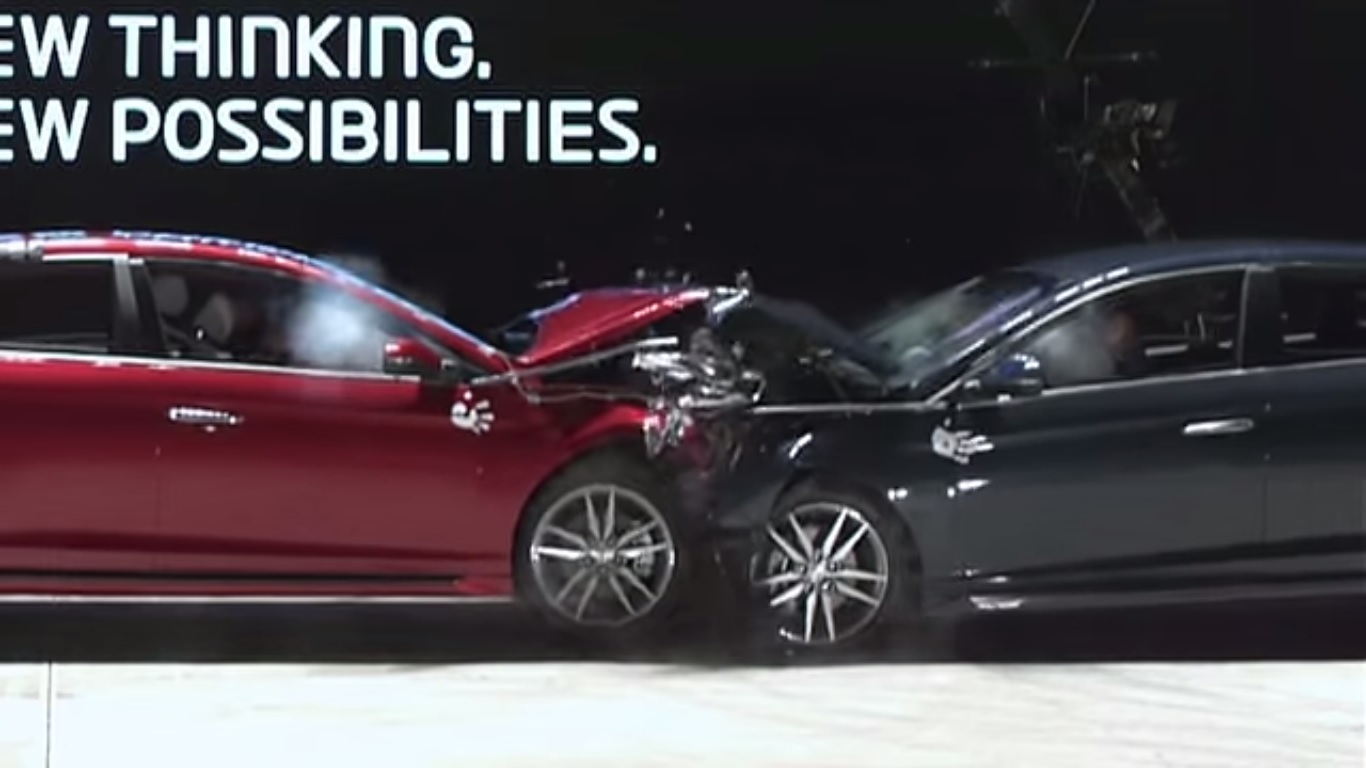We always have this question – manufacturers make sub standard cars for local markets whereas the same models that are exported from the same facility/sold in bigger international markets are better built!
Almost a similar belief existed in the minds of Koreans, the land of Hyundai! They believed that Sonata for the Korean market is not built to similar stiffness standards as the one sold in USA which has a better quality.
To prove a point that this ‘common’ belief among the locals is incorrect, Hyundai brought in cars built in both the nations and pitted them for a Head-on collision. This was to demonstrate that both the cars are as stiff as they can be and there is no differentiation for the locals.
According to what we can decipher from the video (yes, we do not understand Chinese or Japanese, or Korean or whatever that language was), a car was chosen at random from the factory stockyard in USA, hand impressions were embossed apart from other methods to ensure the same car reaches Korea for a head-on car to car test. The US-built car was flown from Los Angeles California whereas a locally built Sonata was picked up from a dealership and towed to the venue of the ‘Real’ test. Both the models chosen were the Sport 2.0T models.
Hyundai invited existing Sonata owners as well as the media to witness the event. Both the Sonatas were made to collide with each other in a specially built area at 56 km/h and from the video we have here, in terms of damages it appears that both of them suffered in equal magnitude on the exteriors and draws home the point that none of them have been compromised in terms of basic safety structure. This is one real valiant attempt and we have not seen manufacturers prove it this way…
Now that is Hyundai for you….!
Hyundai India, can we have something of this sort here as well… 😉




http://indianautosblog.com/2015/02/hyundai-elite-i20-not-safe-enough-for-hyundai-australia-167980
No way will Hyundai dare to do a similar test in India since the Indian hyundais are structurally weak and will collapse against an export model